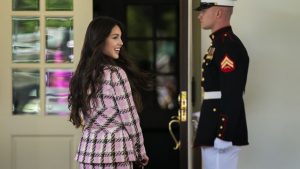COLUMBUS, Ohio — Classroom discussions that could cause controversy have opened up a broader conversation about how teachers are managing through it all.
What You Need To Know
- Ohio legislators worked in the last general assembly to pass bills that would stop “divisive concepts” from being shared in classrooms
- Social studies teachers are pulling back on what they teach for fear of unintentionally stirring up controversy
- Studies now show that principals and teachers are changing their teaching practices to avoid controversy
Recently, educators say awareness has been raised around the possibility of controversial discussions.
In one recent instance within the Olentangy Local School District, a Dr. Seuss book meant for discussion on economics and financial literacy caused a stir during the recording of a podcast for NPR. The reading was cut short when comments were raised by students that centered on race in connection to the book.
In a statement, the district indicated:
“To be clear, the book, ‘The Sneetches’ is not banned and conversations surrounding race, discrimination and segregation are welcomed and encouraged in our classrooms. Ms. Beeman made a personal judgment call to halt the reading of the book, because some of the themes and undertones that were unfolding were not shared with parents in advance as they had agreed to have their children recorded on a national radio program discussing economics and financial literacy. Otherwise, Ms. Beeman would not have intervened. Ms. Beeman was attempting to strike that balance of honoring the promise made to parents while encouraging discussion.”
While the book was given the green light by a third-grade teacher to be shared, some educators around the state believe a sense of fear has risen when it comes to classroom conversations.
This comes after Ohio legislators worked to pass bills that would stop “school districts, community schools, STEM schools, and state agencies from teaching, advocating, or promoting divisive concepts.” While neither of those bills passed in the last general assembly, some said it’s been tough for teachers to navigate those waters.
The Ohio Education Association said teachers—and in particular social studies teachers—are pulling back on what they teach for fear of unintentionally stirring up a controversy that could pose a problem with parents or the community.
They also noted that studies are now show that principals and teachers are even changing their teaching practices to avoid controversy altogether. The belief is that, as a result, students and teachers are losing out on opportunities to learn through classroom discussions.




